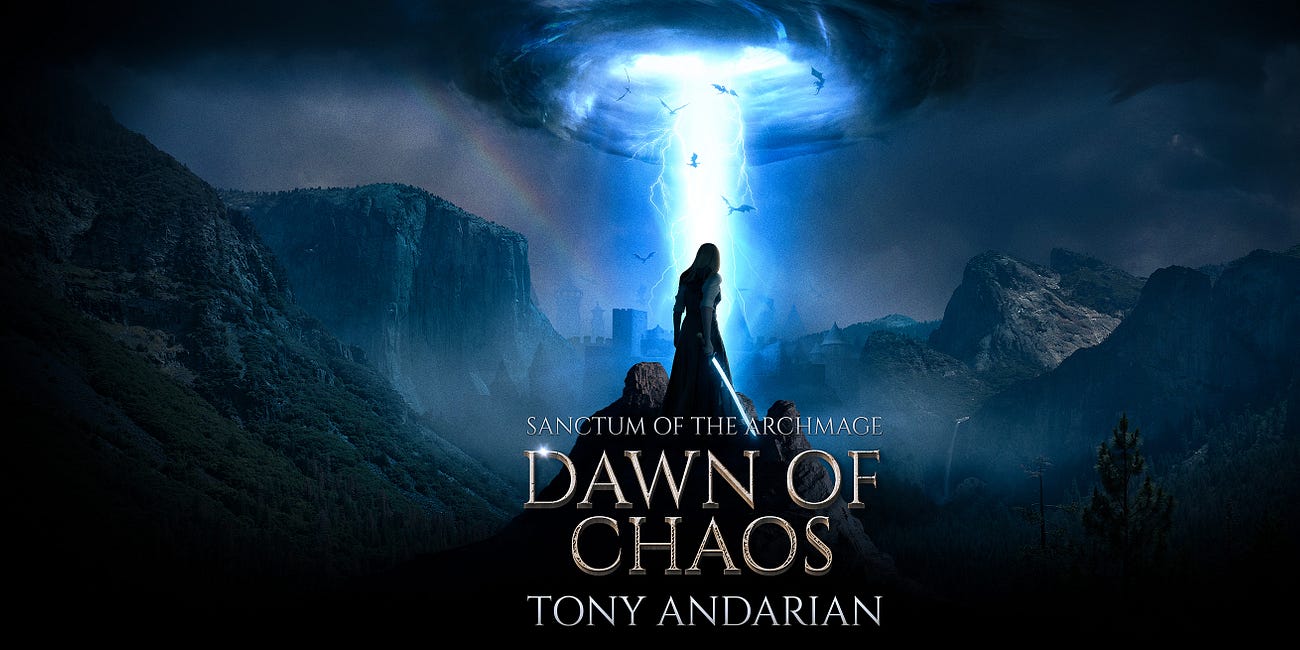I recommend the extraordinary article linked below to anyone trying to understand the state of civilization today. What struck me particularly, though, is how it also touches on themes at the heart of my 𝘚𝘢𝘯𝘤𝘵𝘶𝘮 𝘰𝘧 𝘵𝘩𝘦 𝘈𝘳𝘤𝘩𝘮𝘢𝘨𝘦 novels — namely, real-world individualism and independence vs. obedience to a detached and elite ruling class.
What the Bud Light Fiasco Reveals about the Ruling Class
Jeffrey Tucker, Brownstone Institute
The opening chapter, Rogue Wizard, sets up the Sanctum saga’s central conflict. Emil Zomoran, a professor at the kingdom’s most elite academic institution as well as a powerful wizard, is unjustly targeted by a regressive inquisition. Rather than challenge the accusation with the help of a royal government advancing reforms that would have protected him, he chooses treason — not only to the kingdom, but to the entire world.
“I’m done with you… Done with appealing to fools, aided only by a handful of friends who understood — who saw the brilliant society we could engineer, if only we could order things as they need to be…
“I see now that this society is decadent beyond redemption. It is time for it to be purged in fire and rebuilt from the ashes.”
The resulting apocalyptic war is a direct result of that mindset in action. Not just the belief that one’s own allegedly enlightened ideas are right, but that they are so right that they should be imposed on others by force. That the rights and dignity of the people should be abrogated in favor of one’s own proclaimed wisdom. That society should be guided not by the independent choice of individuals, but by the alleged brilliance of elite rulers blessed with special knowledge.
As in the real world, this path doesn’t work out well in the long run — either for the “enlightened” rulers, or for their subjects. But two corollary observations about that mentality, which the Brownstone article notes, are worth emphasizing. The first is how its favored “growth medium” is a life divorced from real-world experience of the work actually required to sustain human life. The second is how force — usually in the form of government power — is required to enhance and perpetuate it.
In a society where people are free to choose, social and cultural forces gradually evolve to undermine such “elite control.” Genuinely good ideas are adopted over time because they work, thus becoming mainstream rather than “elite.” This is the vision of the saga’s titular hero, the Archmage, Lenard Killraven. Shared by his son and grandson, King Danor and Prince Aron, it underlies the reforms they are trying to enact into law with the kingdom’s new constitution.
When a civilization’s thinkers are removed from the discipline of a real world focus, however, they necessarily begin to follow a “logic” untethered from it. And the more that force is used to sustain that division — social, state, or even (in fiction) extra-planetary — the more their ideas will be encouraged to grow in the direction of arbitrary, academic and quasi-religious dogma. That’s known in philosophy as rationalism: a focus on ideas divorced from experience. And it’s the path taken by the villains of the saga, led by its arch-exponent: Warlord Zomoran, the Black Magus.
The alignment of these themes with developments in today’s world wasn’t my original intent. I’d started working on the saga many years ago, and they came more from long term “what ifs” born of observations about how society and culture were evolving at the time. As it turned out, however, they were much less “long term” than I’d expected. The result has been a strange and new sense of urgency to finally get the story out in published form, before it becomes entirely “overcome by events.”
So if a philosophically themed work of epic fantasy — heroic and not cynical in tone, but with no punches pulled for the squeamish — intrigues you, you may want to check out the Sanctum of the Archmage Saga. I’ve been told that it tells a great story with compelling characters, even if it may hit a bit close to home at times in today’s world. You can find Volume One in e-book and print at the link below:
Sanctum of the Archmage, Volume One: Dawn of Chaos
Or read it as it is serialized to Substack. The first eight chapters are available without a subscription.


